Life sciences programmes typically suffer from an absence of training on innovation and entrepreneurship, traditionally focusing on fundamental sciences and tailoring students' learning towards careers in academia or the pharmaceutical sector. To tackle this and to fully embed entrepreneurship and innovation in the undergraduate biosciences degree programmes at Brunel University London, Prof McCarthy in collaboration with the Professional Development Centre (PDC) and the Entrepreneur Hub created a series of progressive hands-on modules, exposing students to key foundations in intrapreneurship and entrepreneurship from the moment they begin their university journey and building on these foundations as they progress through their degree programmes. Prof McCarthy is dedicated to promoting equality, diversity, and inclusion within the Bioscience sector. These modules use a range of innovative engaged pedagogies to help foster a culture of entrepreneurship and instil in students the belief and confidence that becoming an entrepreneur is a viable career option for someone with a science background. Through these modules, Prof McCarthy also provides students with training in how to develop a value proposition, a business model canvas and how to successfully pitch their ideas. He also exposes students to the wider UK and European innovation ecosystem bringing CEOs and founders of start-ups from the board room to the classroom to inspire students with their journeys. This collaborative and innovative approach serves as an inspiring model for institutions seeking to instil entrepreneurial thinking and skills in their Life Sciences students and cultivates a mindset of creativity and enterprise that extends beyond the classroom.

4th PLACE
Entrepreneurship Educator of the Year Award
Ronan McCarthy
4th PLACE Entrepreneurship Educator of the Year Award
Brunel University London - United Kingdom
"Biosciences with an Entrepreneurial Edge: Empowering Tomorrow’s Innovators "
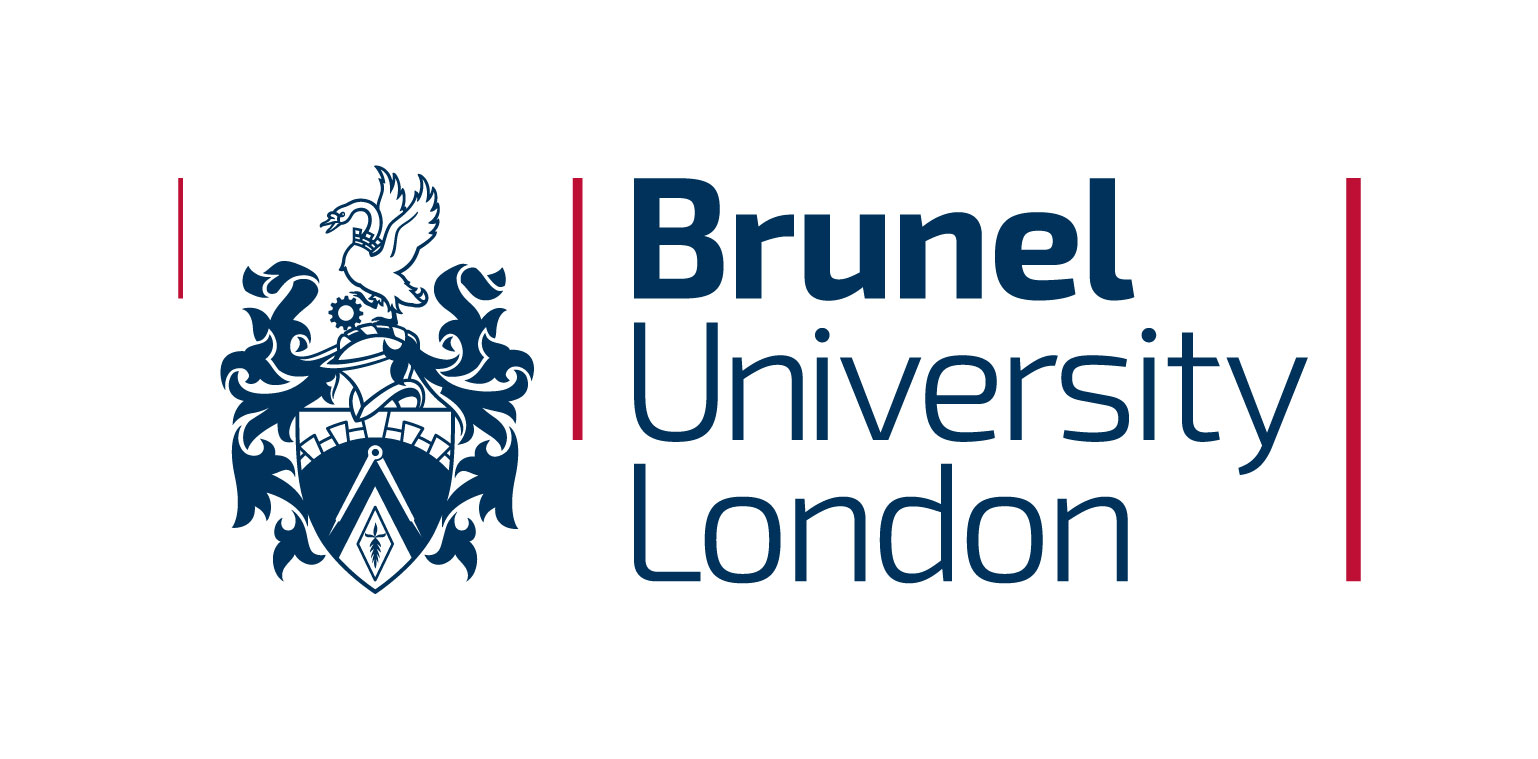
Engage on social media
(For start-ups and freelancers-our Entrepreneur Hub supports students, staff and alumni.)
(Entrepreneur Hub LinkedIn)
(Official PDC, Entrepreneur Hub Instagram account )
Summary
Key People

Prof Ronan McCarthy
Professor in Biomedical Sciences
Department of Life Sciences,
Brunel University London

Farida Danmeri
Entrepreneurship & Employability Consultant
Professional Development Centre,
Brunel University London

Emmy Botterman
Entrepreneurship & Employability Consultant
Professional Development Centre,
Brunel University London
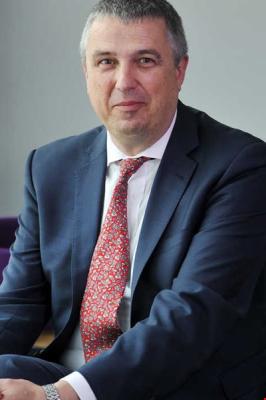
Prof Geoff Rodgers
Pro Vice Chancellor - Enterprise and Employment
Brunel University London

Jonathan Bainbridge
Director of Professional Development Centre
Brunel University London
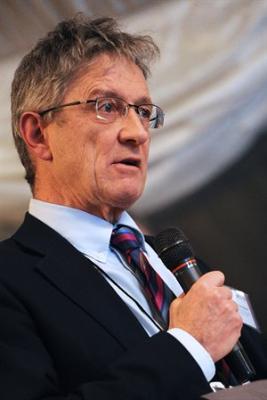
Prof Paul Hellewell
Executive Dean
College of Health, Medicine and Life Sciences,
Brunel University London
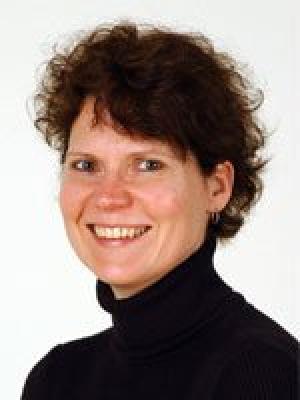
Dr Gudrun Stenbeck
Head of Biosciences Division
Brunel University London

Dr Keith Redpath
Lecturer
Brunel University London

Emily Arnold
Entrepreneur Hub Officer
Professional Development Centre,
Brunel University London
Images
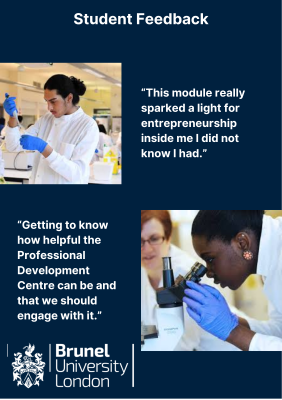
Student feedback on Innovation and Entrepreneurship Modules
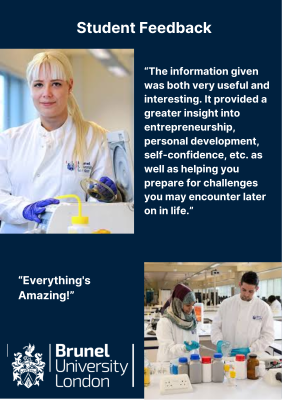
Student feedback on Innovation and Entrepreneurship Modules
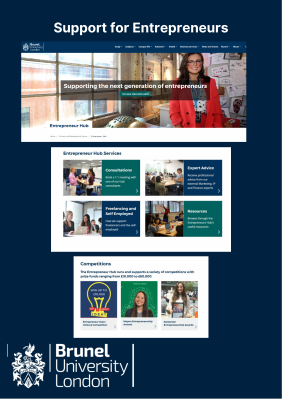
Support for Brunel Entrepreneurs
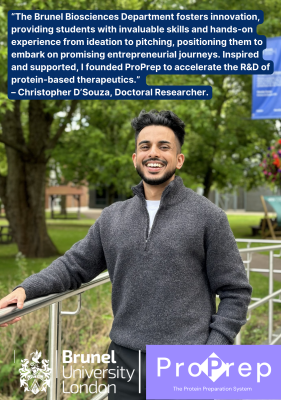
Biosciences Entrepreneur Discusses Support
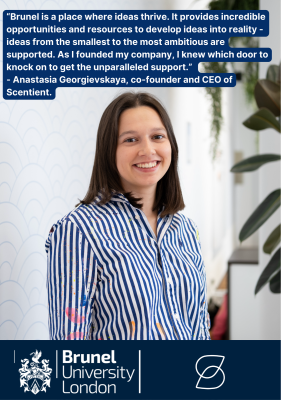
Biosciences Entrepreneur Discusses Support
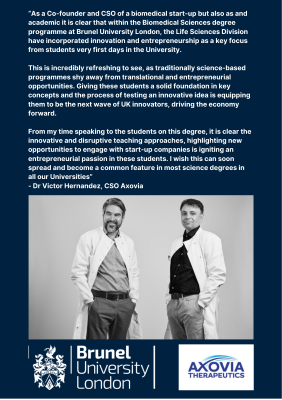
Axovia CSO discusses Prof McCarthys innovative approach to teaching entrepreneurship.

Brilliant Brunel advertised on London Underground
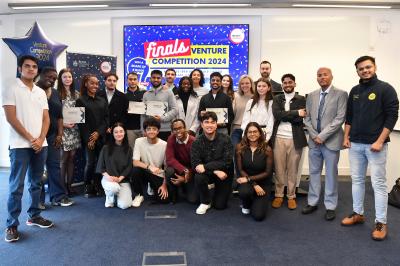
Brunel Venture Competition Finalists 2024
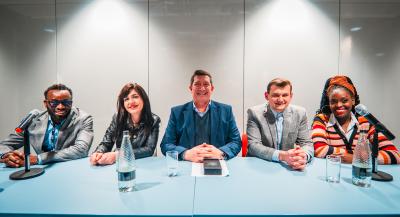
Be Inspired Event: Brunel Entrepreneur Hub Networking Event 2024
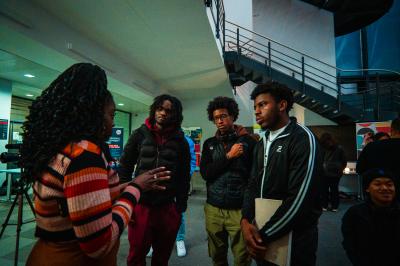
Be Inspired Event: Brunel Entrepreneur Hub Networking Event 2024
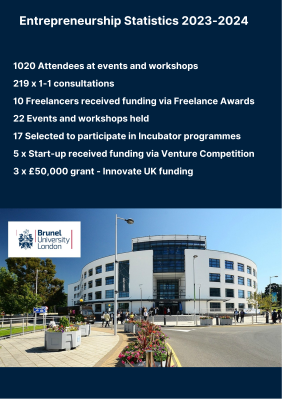
Entrepreneurship Statistics
IMPACT STORY
Impacting lifes
As part of an undergraduate research project, Prof. McCarthy tasked a student with testing the antimicrobial potential of artificial sweeteners commonly found in “diet” or “sugar-free” foods. Remarkably, several of these sweeteners were found to kill antibiotic-resistant bacteria. Recognizing the entrepreneurial potential of this discovery, Prof. McCarthy tasked doctoral and postdoctoral researchers in his team to undertake further research to explore its translational impact. This ground-breaking finding was published in a high-profile research journal, garnering significant international media attention, including features in China Daily and BBC Science Focus Magazine (both online and print) and was also showcased on BBC Radio 4.
Inspired by the potential for commercial application, a postdoctoral researcher proposed exploring the use of these sweeteners as a treatment for infections. Prof. McCarthy championed this innovative idea, supporting the postdoc in securing places on the prestigious Medtech National Accelerator Programme and the ICURe Discovery and Explore Programmes. These programmes were instrumental in advancing the commercial development of sweeteners as wound therapeutics.
At the culmination of the ICURe Discovery Programme, the postdoc received the highest possible recommendation of “Spin Out” from a panel of Venture Capitalists, providing the opportunity to participate in the ICURe Exploit Programme and apply for a closed Innovate UK call for £300,000 grant to support spinning out the venture. This achievement underscores how Prof. McCarthy has established robust infrastructure and support systems to transform biosciences research discoveries into viable entrepreneurial ventures, bridging the gap from laboratory research to international commercial development.
Prof. McCarthy enhances researchers’ entrepreneurial skills to explore bioscience innovations that benefit society.
LEARNINGS
Lessons learned
Traditionally, Life Science degree programmes prepare students for careers in academia, healthcare, or pharmaceutical companies, often overlooking entrepreneurial ventures. Each year, I was surprised by how few students considered entrepreneurship a viable career option. However, it was always exciting to see students' perspectives change as they discovered how their studies lend themselves to innovation and entrepreneurship, such as developing new treatments for diseases or diagnostics. They were often amazed at the support available at Brunel University London and the Entrepreneur Hub.
Universities are hotbeds of entrepreneurship and innovation, yet this often does not reach Life Sciences students, particularly at the undergraduate level. My key advice is to leverage available institutional resources and tailor them for Life Sciences. For example, we redesigned a Business Model Canvas workshop using successful biotech companies as case studies, making the concept more relevant and accessible.
Students can be hesitant about entrepreneurship, especially if they have not considered it before or are risk-averse. To address this, I recommend integrating detailed descriptions and case studies highlighting the power of intrapreneurship—innovating within the safety of a larger organization. Presenting intrapreneurship as a highly sought-after skill by employers helps engage students with entrepreneurial teachings and activities.
I have learned the importance of exposing students to entrepreneurial thinking early on and providing concrete examples and supportive frameworks. By doing so, we can cultivate a new generation of Life Sciences graduates who are not only ready for traditional roles but also equipped to innovate and lead in various entrepreneurial contexts.
FUTURE PLANS
What's coming?
Within the Biosciences Division at Brunel University London, we are introducing an end-of-course assessment that challenges students to create a value proposition based on their final year dissertation projects. This initiative aims to reinforce the entrepreneurial and commercial teachings of the first two years, encouraging students to explore the commercial potential of their research. We are also considering “Open Lab Time,” where students can apply for access to a fully equipped research lab to generate pilot data, crucial for initial pitching competitions or funding calls. This initiative addresses one of the first hurdles bioscience entrepreneurs face.
The artificial sweetener project previously mentioned has secured over £650,000 in funding from the Medical Research Council in the UK. This funding will develop and test artificial sweetener-based wound dressings, taking steps towards clinical applications as treatments or preventatives for bacterial infections.
Prof. McCarthy plans to organize biomedical science enterprise and entrepreneurship workshops for doctoral and postdoctoral researchers in collaboration with the Brunel Entrepreneur Hub. These workshops will cover essential entrepreneurial concepts, idea generation, intellectual property support, and presentation skills, fostering networking and collaboration among students, researchers, and graduates.
Prof. McCarthy's long-term vision for enterprise education at Brunel University includes experiential learning, industry partnerships, and entrepreneurship-focused events. These efforts aim to prepare students and researchers to navigate the bioscience industry's challenges and thrive as successful entrepreneurs and intrapreneurs globally.

